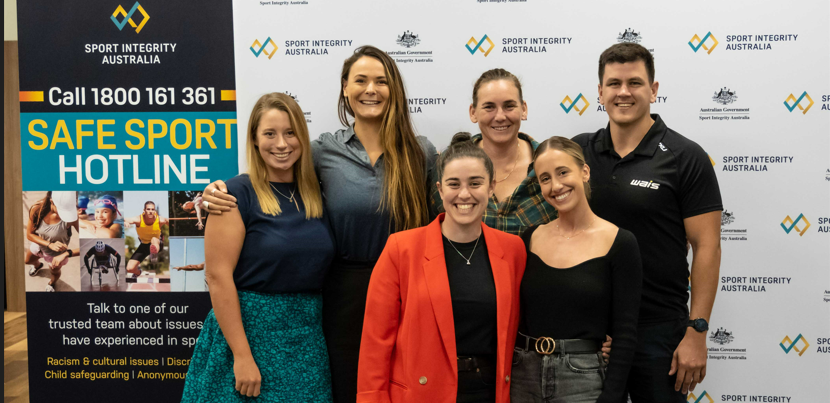The future of athlete education is bright, according to those in the know – Sport Integrity Australia’s athlete educators.
A number of the educators were in Canberra for a three-day workshop this week, designed to upskill them and build knowledge on broader integrity education content.
It was also an opportunity to hear from Sport Integrity Australia’s subject matter experts to learn about anti-doping and other integrity issues such as competition manipulation, safeguarding, science and medicine, integrity complaints, anti-doping testing and investigations.
Former aerobic gymnast Deborah Greenbaum, a 12-time national champion, said the exciting thing about the workshop was realising that there was so much scope for education going forward.
“There’s a lot more work we can do, not only for athletes, but also for pharmacists, doctors and medical practitioners, nurse prescribers, there’s so much more that can be done,” she said.
“I think the way that we’re going down with the National Integrity Framework and the new things that we are presenting, I think there’s so much scope for Sport Integrity Australia to push forward and to educate all the people we can to support the athletes and ensure that they can perform their best in a fair, safe environment.”
Reflecting on her own presentations to date, Greenbaum said her pharmaceutical background was a plus.

“Because I have that extra understanding of the medicines, why they are prohibited and how they interact with the body and the reasoning behind everything, it does help when you can explain that,” she said. “I think when you’re able to explain why, rather than just the specific rule, it makes a big impact.
“You can give the background to it, you’re not just saying ‘this is the rule and that’s how it is, sorry’, which is kind of what I got when I was an athlete … Now, having all the reasoning and support, it’s just an added level that athletes have now which I think is really, really fantastic.”
Retired weightlifter Laura Brittain said being in the same room as the other educators was “inspiring” and “reignited her passion for education”.
“Being in a position to be able to collaborate with one another has been incredible,” she said. “The ideas that we’re coming up with and the excitement that we all have for it, it’s great to be around.”
For Brittain, now an exercise physiologist, her motivation for being a presenter was simple.
“I want to know that everyone has the opportunity to play in a safe, inclusive and respectful environment that rewards nothing but hard work, integrity and good sportsmanship.”
If she had one message for athletes or support personnel, she said it would be that everyone had an opportunity to influence the culture of sport.
“We’re all in a position to create a really incredible culture surrounding integrity within sport, and we all have a part to play in that,” Laura said. “Even just lower-level conversations you are having with one another, or whether it’s with your coaches or people interested in discussing your sport with you, keep in mind that we are all a part of shaping the perception of Australian sport.”
Greenbaum urged athletes to trust in the process, trust your coaches and your training.
“You don’t need that extra thing on the side,” she said. “When you are faced with a quick fix for something, know that that’s probably not the right thing to do, you need to trust that your hard work and your preparation will actually be enough for competition. And trust all the education and, if in doubt, ask.
“I always say draw on the people that have that knowledge and ask questions.”






